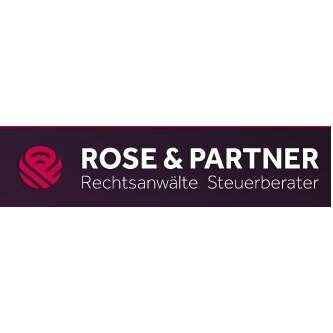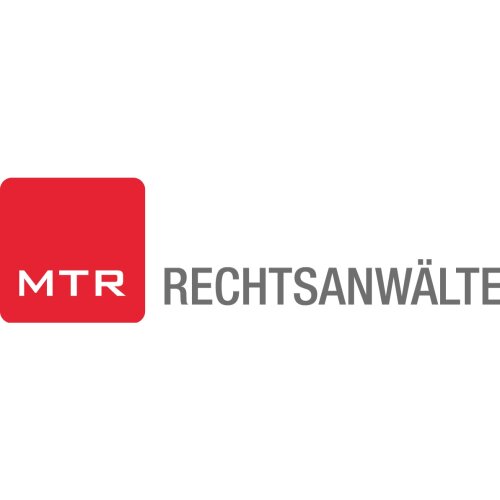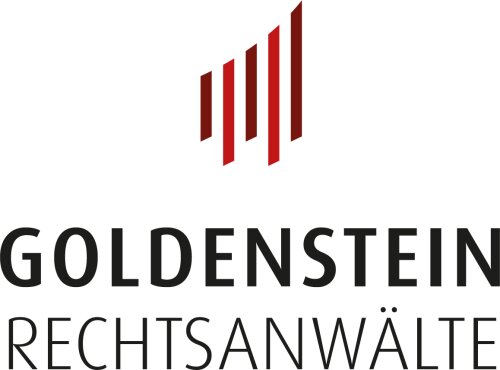Best Renewable & Alternative Energy Lawyers in Berlin
Share your needs with us, get contacted by law firms.
Free. Takes 2 min.
List of the best lawyers in Berlin, Germany
About Renewable & Alternative Energy Law in Berlin, Germany
Berlin, the capital of Germany, plays a leading role in supporting the transition to renewable and alternative energy sources. This transition promotes environmental sustainability and aligns with Germany's national goals under the Energiewende policy, which aims to drastically reduce greenhouse gas emissions and increase the use of clean energy solutions. The legal framework in Berlin covers solar (photovoltaic), wind, biomass, and other alternative energies. It regulates generation, consumption, grid integration, subsides, and new technology deployments, ensuring that these activities align with both local and national priorities.
Why You May Need a Lawyer
While renewable energy offers significant opportunities, navigating the complex legal landscape can be challenging. You may need a lawyer if you are:
- Planning to install solar panels on your property
- Interested in developing wind energy or biogas projects
- Negotiating power purchase agreements or feed-in tariffs
- Facing grid access disputes or regulatory compliance issues
- Involved in land use or zoning conflicts related to renewable installations
- Applying for government subsidies, grants, or incentives
- Handling environmental impact assessments for new projects
- Dealing with disputes between energy producers, consumers, or utility companies
Legal advice can help ensure that your project is compliant with all relevant regulations, maximizes financial support, and addresses any legal conflicts efficiently to avoid costly mistakes or litigation.
Local Laws Overview
Berlin's regulatory environment for renewable and alternative energy is influenced by both federal German law and city-specific regulations.
- Renewable Energy Sources Act (EEG): This national law governs feed-in tariffs, grid access, financial incentives, and obligations for renewable energy producers.
- Building Codes and Zoning: Berlin has city-level planning and building regulations that affect where and how renewable energy systems (such as solar or wind) can be installed.
- Grid Access: There are rules on priority grid access for renewable energy. Disputes may arise over connection costs, technical requirements, or network expansion obligations.
- Subsidies and Incentives: Both the federal and state governments offer grants, loans, and feed-in tariffs to encourage the use of alternative energy sources.
- Environmental Standards: Projects must meet strict environmental assessment requirements, especially for large installations or those near protected areas.
- Consumer and Investor Protection: Laws exist to protect end-users and investors in renewable energy from misrepresentation, unfair contract terms, or technology failure.
Understanding these laws is essential for successful project development and long-term operation in Berlin's renewable energy sector.
Frequently Asked Questions
What is considered renewable or alternative energy in Berlin?
Germany and Berlin recognize solar, wind, hydroelectric, biomass, biogas, geothermal, and certain waste-to-energy processes as renewable or alternative energy sources.
Are there incentives for installing solar panels in Berlin?
Yes. There are feed-in tariffs, grants, and favorable loan programs offered by the city of Berlin and the federal government to support the installation of solar panels for both private and commercial use.
Can I sell surplus solar power to the grid?
Private individuals and businesses with eligible systems can feed surplus power into the grid and receive payment based on the rates specified in the Renewable Energy Sources Act (EEG).
Do I need planning permission for renewable energy installations?
Small rooftop solar panels often do not require full planning permission, but larger systems, wind turbines, and installations on listed buildings or within conservation zones may need approval from local authorities.
What are the main legal challenges for renewable energy projects?
Key challenges include obtaining permits, meeting technical standards, grid connection disputes, and navigating environmental or zoning restrictions. Additionally, securing subsidies and handling contractual negotiations can be complex.
Is it possible for tenants to participate in renewable energy initiatives?
Berlin encourages tenant involvement through collective solar projects known as Mieterstrom, or tenant electricity models. Landlords and tenants can cooperate, but regulatory requirements must be met.
What is Mieterstrom?
Mieterstrom allows electricity produced in apartment buildings (typically via solar panels) to be sold directly to tenants. Special regulations and incentives apply to encourage this decentralized model.
Do businesses face different regulations for renewable energy compared to individuals?
Businesses must comply with additional regulations involving industrial safety, large-scale grid connections, and sometimes higher environmental assessments. However, they may also access larger funding programs.
What happens if my renewable energy installation does not meet legal standards?
Non-compliant installations risk penalties, denial or return of subsidies, enforced shutdowns, and potential civil liability. Legal assistance is highly recommended to avoid these issues.
How long does it take to get legal approval for a renewable energy project?
Approval times depend on the scale and type of the project. Simple residential solar systems may be approved within weeks, while commercial projects with significant grid impact might take several months or longer.
Additional Resources
- Berlin Senate Department for the Environment, Urban Mobility, Consumer Protection and Climate Action: Offers guidance, application forms, and information on local renewable energy regulations.
- Federal Ministry for Economic Affairs and Climate Action (BMWK): The primary body for national policy, subsidies, and policy updates.
- KfW Development Bank: Provides grants and loans for renewable energy projects, including residential and commercial systems.
- Bundesnetzagentur (Federal Network Agency): Regulates grid, feed-in tariffs, and monitors market compliance.
- Berlin Solar Initiative (Berliner Solarinitiative e.V.): A local association providing information and support for community and private solar projects.
- Chamber of Industry and Commerce (IHK Berlin): Assists businesses with legal and technical advice concerning renewable energy adoption.
Next Steps
If you need legal assistance with a renewable or alternative energy matter in Berlin:
- Document your specific needs, such as project goals, property information, and any correspondences with authorities or utility companies.
- Consult relevant governmental and nonprofit organizations for initial guidance and eligibility checks for incentives or permits.
- Contact a lawyer or law firm specializing in renewable energy law and familiar with Berlin or German energy regulations. Many offer initial consultations to evaluate your situation.
- Prepare to discuss your project plans, contracts, any received notices, and your desired outcomes in detail.
- Work with your lawyer to ensure compliance, maximize benefits, and address disputes or questions as they arise. This reduces risks and avoids delays for your renewable energy projects.
Legal advice is a key to navigating the evolving rules and opportunities of Berlin’s renewable and alternative energy sector. Acting proactively will help you meet your goals while staying protected under the law.
Lawzana helps you find the best lawyers and law firms in Berlin through a curated and pre-screened list of qualified legal professionals. Our platform offers rankings and detailed profiles of attorneys and law firms, allowing you to compare based on practice areas, including Renewable & Alternative Energy, experience, and client feedback.
Each profile includes a description of the firm's areas of practice, client reviews, team members and partners, year of establishment, spoken languages, office locations, contact information, social media presence, and any published articles or resources. Most firms on our platform speak English and are experienced in both local and international legal matters.
Get a quote from top-rated law firms in Berlin, Germany — quickly, securely, and without unnecessary hassle.
Disclaimer:
The information provided on this page is for general informational purposes only and does not constitute legal advice. While we strive to ensure the accuracy and relevance of the content, legal information may change over time, and interpretations of the law can vary. You should always consult with a qualified legal professional for advice specific to your situation.
We disclaim all liability for actions taken or not taken based on the content of this page. If you believe any information is incorrect or outdated, please contact us, and we will review and update it where appropriate.













